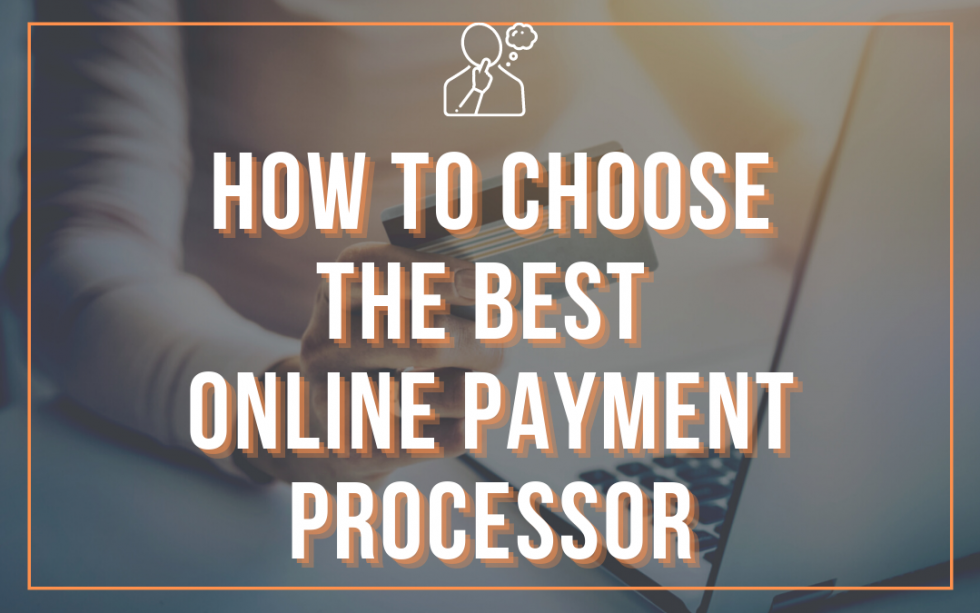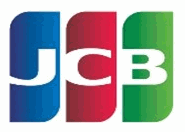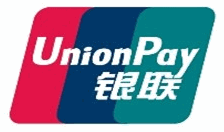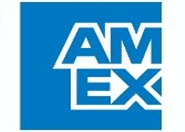The Ultimate Guide to High-Risk Merchant Accounts: Everything You Need to Know

The demand for high-risk merchant accounts is on the rise. As the Internet continues to expand, bringing new pricing models, content opportunities, and diverse products and services, businesses need payment processing solutions that can handle the increased risk of chargebacks.
You’re probably familiar with some industries that require high-risk payment processing, but others might surprise you. Many legitimate businesses find themselves labeled as high risk—not because of their practices, but due to the nature of their industry, unique billing structures, or even past credit issues beyond their control.
So, what makes a business high risk? Why does it matter? And how do you choose the right payment processor to support long-term success? We’re here to walk you through it, ensuring you have the knowledge and tools to navigate the world of high-risk merchant services with confidence.
Industries That Require High-Risk Merchant Accounts
As a prominent high-risk merchant account provider, we can tell you—you may be surprised by how many business models require this type of processing. Let’s go over a few and explain why.
Understanding the who and why behind high-risk payment processing can help you better assess your own business’s processing needs. More importantly, it can help you stay compliant with your current or future high-risk payment processor to avoid unnecessary account holds or terminations.
Businesses with Unique Pricing Models
Welcome to the age of subscription fatigue (we’ve got a full guide for how businesses can help encourage consumers to overcome subscription fatigue.).
Subscription-based services are one of the most popular billing models online. But we don’t have to tell you—we’re confident you have a Netflix account, subscribe to Amazon’s "Subscribe & Save," or maybe even signed up for a monthly car wash membership.
It seems like nearly every service is pushing for a subscription-based model. The obvious reason?
It’s more profitable for businesses.
For consumers, it’s often more convenient and can even save money in the long run. When it’s a service they frequently use, subscriptions make a lot of sense.
But why are they considered high-risk?
Well, there are a few key reasons:
- Chargebacks from forgetfulness – Many consumers sign up for a recurring subscription and completely forget about it. When they suddenly notice charges months later, they dispute them instead of canceling properly.
- Trial period confusion – Some businesses offer free or low-cost trials that automatically roll into paid subscriptions. If customers aren’t fully aware of the terms, they might file a chargeback rather than cancel.
- Dissatisfaction with ongoing service – Unlike one-time purchases, subscriptions require ongoing value. If consumers feel they aren’t getting what they paid for, they may dispute charges instead of reaching out for support.
- Learn more about the FTC’s “click to cancel” rule that may help stave off some of these issues.
A high-risk merchant account helps businesses in these industries by providing chargeback protection, ensuring seamless payment processing, and allowing them to operate without constant interruptions from banks.
High-Chargeback Industries
Some industries are naturally prone to increased chargebacks—when a consumer calls their credit card provider to dispute a charge instead of working with the business to resolve the issue.
Adult Content & Services
We’re not going to bury the obvious lead here.
One of the most well-known high-risk industries is adult entertainment. This includes streaming platforms, content subscriptions, dating services, and novelty products.
Why?
- Discreet purchases – Many customers don’t want adult-related charges appearing on their statements. Even if they made the purchase, they might dispute it to avoid embarrassment.
- Subscription-based models – Many adult platforms use a recurring payment model, leading to the same subscription chargeback issues we discussed earlier.
- Fraudulent or unauthorized purchases – Stolen credit cards are sometimes used to access adult services, leading to high levels of fraud disputes.
These risks make high-risk credit card processing essential for businesses in this space, helping them handle disputes while keeping transactions secure.
Travel Industry
The travel industry has exploded in recent years, making booking a trip easier than ever. Flights, hotels, rental cars, and full vacation packages can all be secured online in just a few clicks.
But why is travel payment processing high-risk?
- Advance bookings – Customers often book months in advance. If plans change, they may request refunds, which can lead to chargebacks if policies aren’t clear.
- High-ticket transactions – Large purchases (such as flights and luxury vacations) make travel businesses a target for fraud.
- Cancellations & disputes – Whether it’s a bad hotel stay or a canceled flight, customers frequently file chargebacks instead of working through the proper refund channels.
A high-risk merchant account ensures that travel businesses can accept payments confidently, reduce disputes, and minimize fraud-related losses.
Businesses with Regulatory Challenges
Some industries face extra scrutiny due to legal, compliance, and banking restrictions. The most notable are:
CBD & Cannabis
While the market for CBD and marijuana products has skyrocketed, the banking industry has been slow to catch up. Many banks still refuse to process payments for CBD payment processing and marijuana dispensaries due to regulatory concerns.
Key risks include:
- Varying state & federal regulations – Laws differ from state to state, making it difficult for banks to navigate. Here’s a full guide to CBD and marijuana state laws if you want to learn more.
- Chargebacks from misinformation – Some consumers expect stronger effects from CBD or misunderstand its benefits, leading to refund disputes.
- Advertising restrictions – Many payment processors flag CBD and cannabis transactions as high risk due to advertising and marketing limitations.
Businesses in this space need a high-risk payment gateway that understands the industry’s complexities and ensures reliable payment processing.
Online Gambling & Betting
Gambling and sportsbook businesses also fall into the high-risk payment processing category due to:
- Strict government regulations – Online gambling laws vary worldwide, making compliance tricky.
- Age verification concerns – Ensuring that only legal adults place bets can be challenging. Learn which states legally allow for online gambling.
- High transaction volume – Gambling platforms handle large sums of money, increasing the risk of fraud and money laundering.
Reliable casino payment processing or betting payment processing allows these businesses to accept wagers securely while staying compliant.
Other High-Risk Businesses
Some industries don’t fit neatly into other categories but are still considered high risk due to financial instability, regulatory issues, or chargeback potential.
Multi-Level Marketing (MLM)
While not all MLM businesses are problematic, many operate on subscription-based models, and some have been flagged for high refund rates or pyramid scheme accusations. A MLM merchant account ensures stable payment processing for these companies.
Credit Repair
The credit repair industry helps consumers fix their financial standing, but banks often classify these businesses as high risk due to:
- Regulatory scrutiny – Credit repair companies must follow strict legal guidelines.
- Delayed service timelines – Since results take time, customers sometimes lose patience and file chargebacks.
A credit repair payment processing solution ensures that businesses in this space can continue serving clients without banking roadblocks.
Rehab & Addiction Treatment Centers
Rehab facilities often deal with large-sum payments, government funding, and insurance reimbursements—all of which create processing challenges.
Why rehab centers are considered high risk:
- High-ticket transactions – Treatment costs can run thousands of dollars, increasing fraud concerns.
- Payment from third parties – Family members or sponsors often cover costs, leading to potential disputes.
- Regulatory concerns – Facilities must comply with HIPAA, insurance laws, and financial regulations.
Using a high-risk merchant account allows rehab centers to accept payments smoothly, ensuring financial security for their services.
Why Are These Businesses Considered High Risk?
While each industry has its own unique challenges, most high-risk businesses share common factors that make banks and processors wary:
- History of excessive chargebacks or fraud – Whether due to customer disputes, industry norms, or fraud, high chargeback rates can flag a business as high risk.
- Operating in a regulated or restricted industry – Businesses in sectors like CBD, gambling, credit repair, and rehab must navigate strict compliance rules, making payment processing more complex.
- Subscription-based models with recurring billing risks – Customers often forget about or dispute subscriptions, leading to higher chargebacks.
- International transactions and high transaction volume – Cross-border payments and high-ticket sales create higher fraud risks, requiring specialized high-risk payment processing.
Summarizing: The Challenges of High-Risk Payment Processing
Running a high-risk business comes with payment processing hurdles that traditional businesses don’t face. Here’s what you need to know:
- Higher Processing Fees & Rolling Reserves – Because high-risk businesses carry more financial uncertainty, processors charge higher transaction fees. Many also hold a percentage of your revenue in a rolling reserve to cover potential chargebacks.
- Increased Scrutiny from Banks & Processors – High-risk businesses are subject to tighter regulations, stricter underwriting, and ongoing monitoring to detect fraud or excessive chargebacks. Sudden spikes in transactions can trigger account holds or requests for additional documentation.
- Difficulty Securing & Maintaining a Merchant Account – Many traditional payment processors won’t work with high-risk businesses at all. Even if you’re approved, failing to manage chargebacks or follow compliance rules can result in account closure without warning.
While these challenges can feel overwhelming, choosing the right high-risk merchant account provider ensures you have stable, secure payment processing tailored to your industry’s needs.
The Role of Payment Gateways & Banks
Payment gateways and banks are the backbone of high-risk payment processing, working together to ensure smooth and secure transactions.
- Payment gateways act as a bridge between your business, the customer’s bank, and the payment processor. They encrypt payment data, authorize transactions, and help protect against fraud.
- Merchant banks are where the actual processing happens—this is the financial institution that holds your merchant account and facilitates fund transfers from customers to your business.
A reliable high-risk payment processor brings all these elements together, ensuring your transactions are fast, secure, and compliant. Choosing the right payment gateway and acquiring bank is crucial for keeping your business running smoothly without interruptions.
Leveraging Tokenization for Secure High-Risk Payments
One of the most effective tools for high-risk businesses to reduce fraud and chargebacks is tokenization. Instead of storing sensitive card or bank details, tokenization replaces them with a unique, encrypted token. This token is then used for secure, recurring transactions—reducing the risk of data breaches and unauthorized chargebacks. This means that when a nefarious character attempts to intercept the card data, they actually end up with nothing at all.
At Mobius Pay, we take security a step further by offering ACH and SEPA payments supported by tokenization. This provides businesses with safer, more reliable payment options while minimizing risk.
A strong payment gateway, merchant bank, and tokenization strategy work together to ensure stable, secure, and compliant high-risk payment processing.
Best Practices for Maintaining Good Standing with a Payment Processor
When it comes to high-risk payment processing, your relationship with your payment processor is the lifeblood of your business. Losing that relationship due to excessive chargebacks, compliance issues, or fraud can shut down your ability to process payments—and ultimately, your business.
To stay in good standing, you need a proactive approach. Here’s how:
Chargeback Management Strategies
Chargebacks are the biggest threat to high-risk businesses. Unlike standard refunds, a chargeback happens when a customer disputes a charge directly with their bank instead of going through your support team. Too many chargebacks can lead to higher fees, fines, or even merchant account termination.
To reduce chargebacks:
- Make refund policies crystal clear – Customers should easily understand how to cancel, request refunds, or dispute charges directly with you instead of their bank. Transparent policies can significantly reduce disputes.
- Use proactive dispute resolution – Offer customer support that resolves complaints quickly to prevent escalations to the bank.
- Implement transaction monitoring – Fraud is an unavoidable part of e-commerce, but early detection is key. Advanced fraud prevention tools help flag suspicious transactions before they lead to disputes.
- Leverage chargeback protection tools – Some high-risk payment processors offer automated tools to help fight and prevent chargebacks, reducing their impact on your business.
By taking chargeback prevention seriously, high-risk businesses can keep processing stable, protect their revenue, and build long-term trust with their payment processor.
Choosing the Right High-Risk Payment Processor
- What to look for in a provider (experience, industry expertise, flexible solutions).
- Key features to consider: multi-currency support, fraud prevention, fast approvals.
- Why Mobius Pay is a trusted choice for high-risk businesses.
Choosing the Right High-Risk Payment Processor
Not all payment processors are built for high-risk businesses. Choosing the wrong one can lead to unexpected account closures, withheld funds, and constant processing headaches. To ensure long-term stability, businesses need a high-risk payment processor that understands the unique challenges of their industry.
What to Look for in a High-Risk Payment Processor
When evaluating a high-risk merchant services provider, consider:
- Industry Experience – A processor with experience in high-risk sectors understands compliance, chargeback prevention, and regulatory requirements that affect your business.
- Flexible Solutions – Your business needs options, from multiple payment methods to custom fraud prevention tools that fit your risk profile.
- Strong Banking Relationships – A reliable processor should have partnerships with multiple acquiring banks, ensuring account stability even in high-risk industries.
Key Features to Consider
A trusted high-risk payment processor should offer:
- Multi-Currency Support – If your business operates internationally, you need a processor that supports global payments with competitive exchange rates.
- Fraud Prevention Tools – Built-in transaction monitoring, AI-driven fraud detection, and tokenization help minimize disputes and chargebacks.
- Fast Approvals & Seamless Integration – The best providers offer quick onboarding and easy integration with your website, checkout, and CRM systems.
Mobius Pay offers trusted solutions to all your high-risk business needs. With over 20 years of combined experience, we help businesses not only mitigate processing risks, but build long-term businesses with successful processing solutions.
Return to Blog







* Created by
